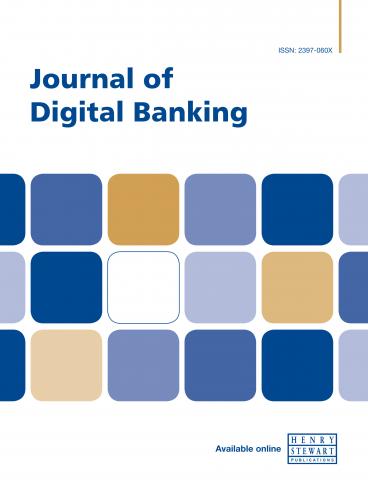"Provides relevant insights from industry leaders and experts"
From open banking to embedded finance: The essential factors for a successful digital transformation
Click the button below to download the full text of the article.
Abstract: Consumers’ needs have changed significantly in recent years, and so have their expectations of financial services. Not only does a large part of their life take place online, but digital apps and products are also integrated into everyday situations. Instead of offering isolated products on a website, companies therefore began to address consumers right at their ‘point of need’ — on e-commerce platforms, in apps from mobility service providers or on comparison portals. Banks can adopt this approach by embedding financial services into the products of non-bank companies, thus offering seamless processes and an increased level of convenience to their clients. Open banking is what provides the foundation for this concept of ‘embedded finance’, by allowing third parties to access banking data via technical interfaces — so-called application programming interfaces (APIs). In 2015, Deutsche Bank decided to take advantage of the opportunities offered by open banking. Through an API programme, the bank enables its partners and customers to integrate banking data as well as financial products and services into their own applications and products. Thus, partners can offer financial services to their customers directly at the point of need. The work of Deutsche Bank’s API Program has provided valuable insights into how banks can successfully open up and even take the next steps towards embedded finance. This paper looks at Deutsche Bank’s experience with open banking and the possibilities and opportunities for embedded finance and presents best practice examples for the necessary internal transformation of financial institutions.
Keywords: APIs; open banking; embedded finance; banking-as-a-service; digital transformation
Joris Hensen is responsible for the Deutsche Bank’s API Program, which he co-founded in 2015. The developer portal of Deutsche Bank gives partners quick and easy access to more than 35 application programming interface (API) products, enabling them to connect personalised apps and services and thus open up new areas of value creation. Joris sees himself as an intrapreneur and is dedicated to exploring how open banking can change and improve people’s lives. In his more than ten years at Deutsche Bank, Joris Hensen has worked as a project and innovation manager on various international projects. Early on, he became enthusiastic about innovations and future trends and was given the opportunity to set up a corporate foresight programme in 2012, in which he developed future scenarios and innovation strategies for Deutsche Bank. He has also been a guest lecturer at the Zeppelin University in Friedrichshafen on the topics of foresight, innovation and design since 2014.
Brigitte Kötting is Communications Manager at Deutsche Bank’s API Program, with a keen interest in digitalisation. Her main focus is to highlight the importance of digital interfaces (application programming interfaces, APIs) for the future of banking, with the aim of connecting banks and non-bank companies to create innovative new products and added value. Previously, she was responsible for marketing and communications projects in various companies and industries, including the Fraunhofer Institute for Computer Graphics Research, the computer games industry and the automotive sector.



